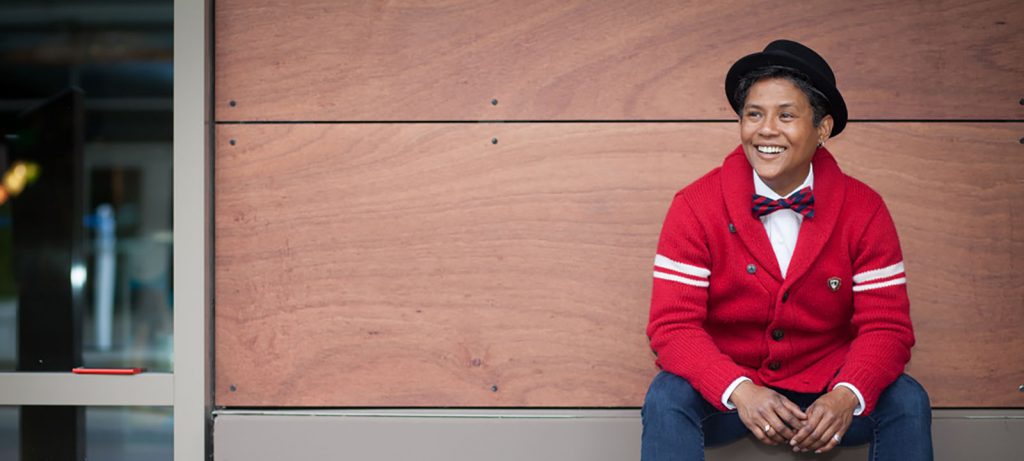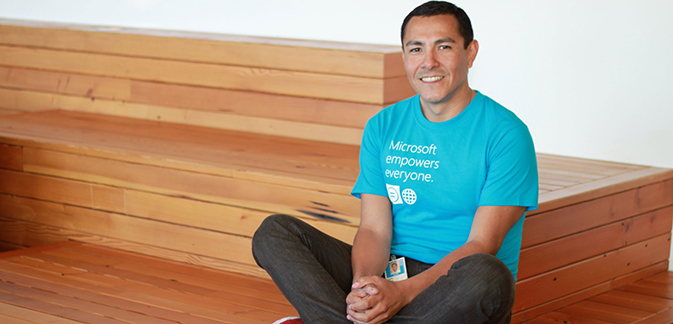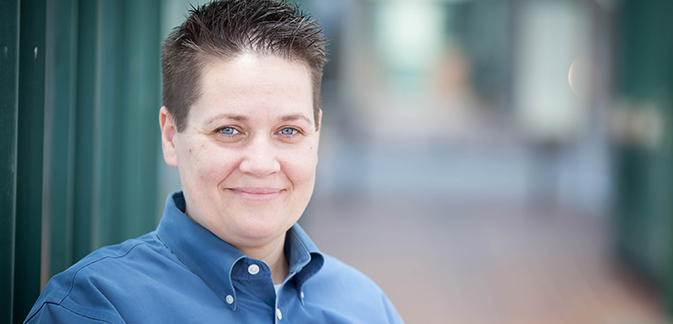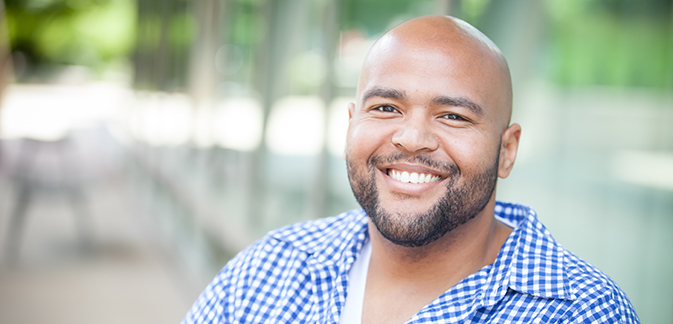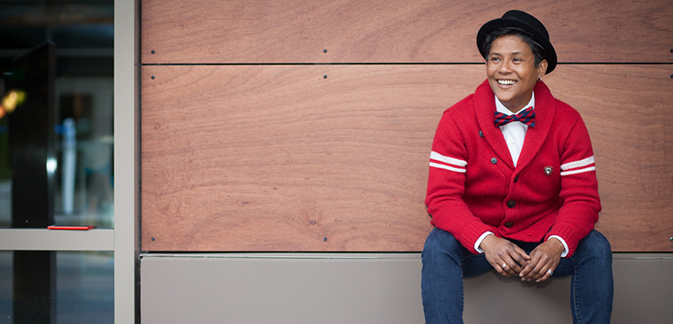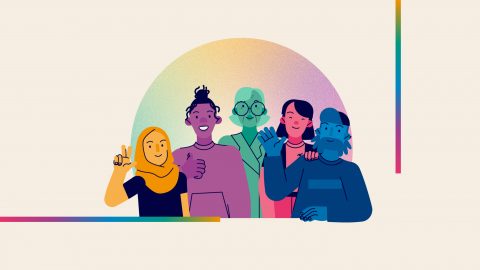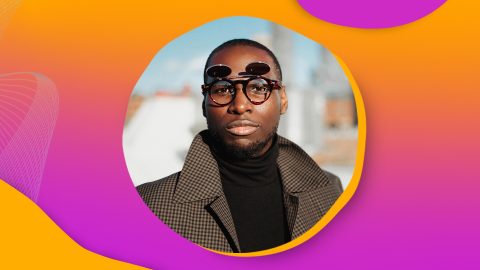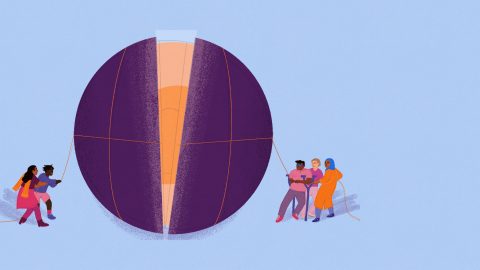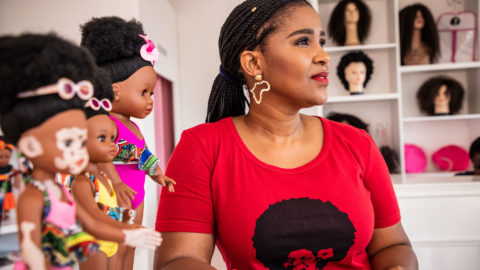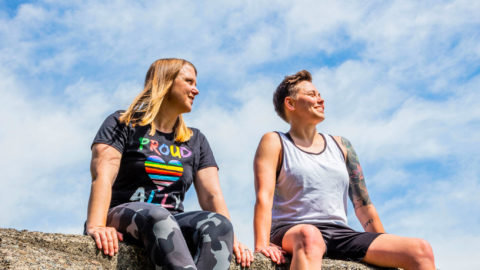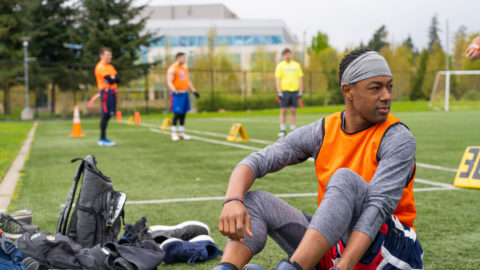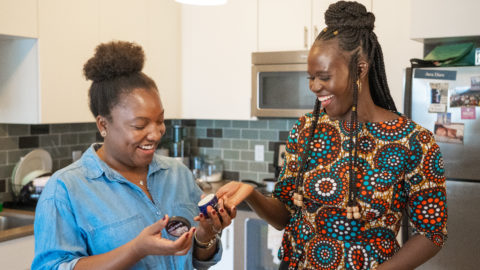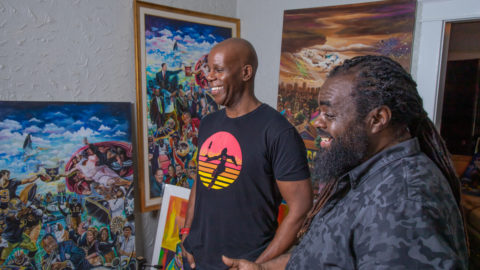Microsoft Pride: This is who I am
Employees celebrate diversity and inclusion in marches worldwide
Clark Ly landed a job at Microsoft almost eight years ago simply by applying online. As a woman who identified as a lesbian at the time, he came out gradually and enjoyed the feeling of “just being able to be me” at work.
But Ly’s bigger revelation was yet to come. In January, he had his manager let all of his colleagues know via email that he was transitioning to become male.
“People came to my office and gave me hugs. I got a number of high-fives,” recalls Ly, who helps publishers get their games on Xbox as release manager for the Global Games Publishing Group. “It was not the response I was expecting – not to that level. It was fantastic.”
Such support for individuality inspired Microsoft’s theme for Pride: “This is me. Do great things.” On Sunday, Ly and hundreds of colleagues will march in Seattle’s Pride Parade. It’s part of Microsoft’s global effort to celebrate diversity and inclusion at a company that’s consistently ranked as a top place to work for LGBT equality.
Microsoft employees will also join Pride marches this weekend in Chicago, New York City, Houston, San Francisco, Mexico City, Ireland, the United Kingdom, Denmark and Finland, as well as other European cities later this summer. Others joined similar celebrations earlier this month in Boston, Washington D.C. and Rome, where an enthusiastic group waved Microsoft banners and a rainbow flag to cheers and praise.
The worldwide festivities are a way “to join hands together in an expression of Pride, inclusiveness, acceptance and diversity,” says Dan Bross, executive co-sponsor of GLEAM, Microsoft’s LGBT Employee Resource Group. “We are marching to celebrate our victories, and as a reminder of the work to be done.”
Marchers in Ireland have even more reason to celebrate. The country’s May vote to legalize marriage for same-sex couples led to “confetti, tears of joy and a general spirit of pure elation” in the streets of Dublin – a sentiment that “will undoubtedly carry forward to the Pride parade on Saturday,” says Dena Lawrence, GLEAM director for Ireland as well as Europe, the Middle East and Africa.
Ly, who will march Sunday as worldwide co-chair of GLEAM, says coming out as transgender was a scary step but led to where he is now: feeling supported and accepted at Microsoft. He also appreciates one aspect of the stellar benefits the company is widely known for: the company offers transgender services coverage.
“Now that I can be myself, I’m not projecting anything other than me, and that is so much nicer because I don’t have that fear of being found out,” he says. “Being able to be who I am at Microsoft is wonderful … I’m the happiest I’ve ever been.”
As Ly and others follow a three-mile route handing out T-shirts and other cool swag on Sunday, Microsoft Pride Director Erika Voss expects the biggest turnout yet. The senior business continuity manager says the marches, sponsored by the Windows team, are a way for people to say “this is who I am” and be recognized for the incredible work they do.
“I think it’s great that at Microsoft, it doesn’t matter who you are, what you look like, what you wear or what your background is that defines you. It’s, do you show up and do great things?” Voss says. “And I think that’s what makes Microsoft successful in including people. You can just be whoever you are.”
Voss knows what it’s like to not be accepted. Though her family is very supportive now, the reaction she got when she came out as gay at a Thanksgiving gathering at age 21 was decidedly mixed. She also recalls how at a previous job her short hair and business attire — usually a button-down shirt and tie — were “very challenging for clients.” She could feel it in each uneasy handshake.
At Microsoft, she says, she hasn’t felt that once. She loves her job in disaster recovery planning, what she calls “the nerd side of emergency management,” and says she would do it for free.
Being gay “Doesn’t define who I am, it’s just one piece of who I am,” she says. “I come to work every day and show up and give 182 percent.”
Cynthia Per-Lee, executive co-sponsor of GLEAM, says Microsoft’s commitment to helping everyone on the planet achieve more requires a deep understanding of its customers’ diversity. “Reflecting that customer base in our employees and fostering an environment where they can be and bring their ‘best selves’ is an essential part of the culture that will enable Microsoft to thrive,” she says.
Kenyon Stewart, a senior Human Resources manager, began as a contractor at Microsoft in 2010 and “was able to learn more about the culture, how things work and how people are treated.” He says he didn’t know how inclusive Microsoft was before he started, but it definitely factored into his decision to become a full-time employee.
Growing up in a Cincinnati, he learned to hide parts of himself and struggled to fit in as an African-American, church-going boy who was told homosexuality was a sin but would, at age 30, come out as gay. He now believes he’s valued at his job for all of who he is.
-
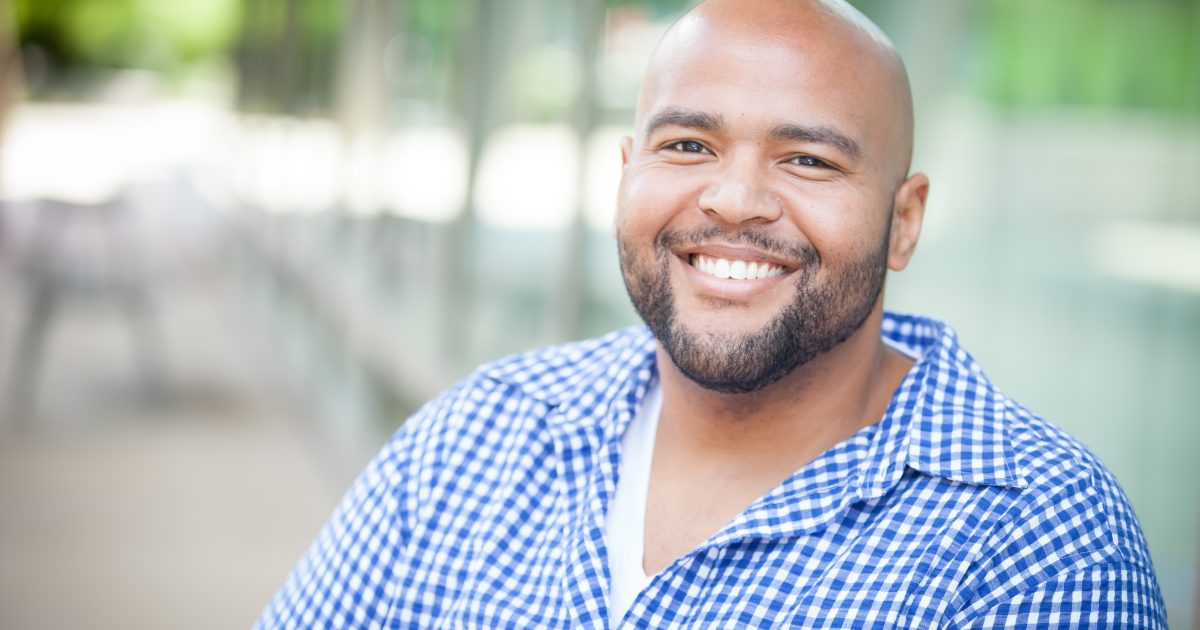
“The entire time I’ve been at Microsoft I’ve been able to be myself and be embraced and appreciated for the diversity I bring, not necessarily from a sexual-orientation perspective, but more along the lines of my background and the experiences I’ve had,” he says.
He’s also active with GLEAM, which has more than 2,000 members around the world, and is proud to work for a company that in 1993 became the first Fortune 500 Company to provide same-sex domestic partnership benefits.
Microsoft joined other leading companies several years ago to support the recognition of marriage for same-sex couples in its home state of Washington and advocates the same across the country and around the world.
“That speaks volumes about the company and our commitment to ensuring that people are treated fairly and equally and have an opportunity to bring their best to work,” Stewart says.
For John Payes, too, that stance was “probably my proudest moment as an employee,” he says. The global program manager for Enterprise Marketing will be marching with his Microsoft colleagues Sunday for the sixth year in a row.
“It’s actually been phenomenal to see how our company shows up in our hometown, where people have a lot of great respect for Microsoft,” he says.
Payes says Microsoft’s score in the Human Rights Campaign’s Corporate Equality Index was “a deciding factor” when he came to work here seven years ago. The company was on the “Best Places to Work” list back then and made the list this year, scoring 100 percent for the tenth in a row.
“That, to me, was a good affirmation that wasn’t coming from a corporate brochure,” he says.
Payes says he has worked in far less accepting places, and “the difference is day and night.” He believes people who have to conceal certain aspects of themselves are not only less happy, but less productive as well.
“I’m able to perform 200 times more than I did in my first job, when I felt like I was being limited,” he says. “If you’re working in a company that is not as open, you will work with a lot of silent employees who will not share their ideas.”

